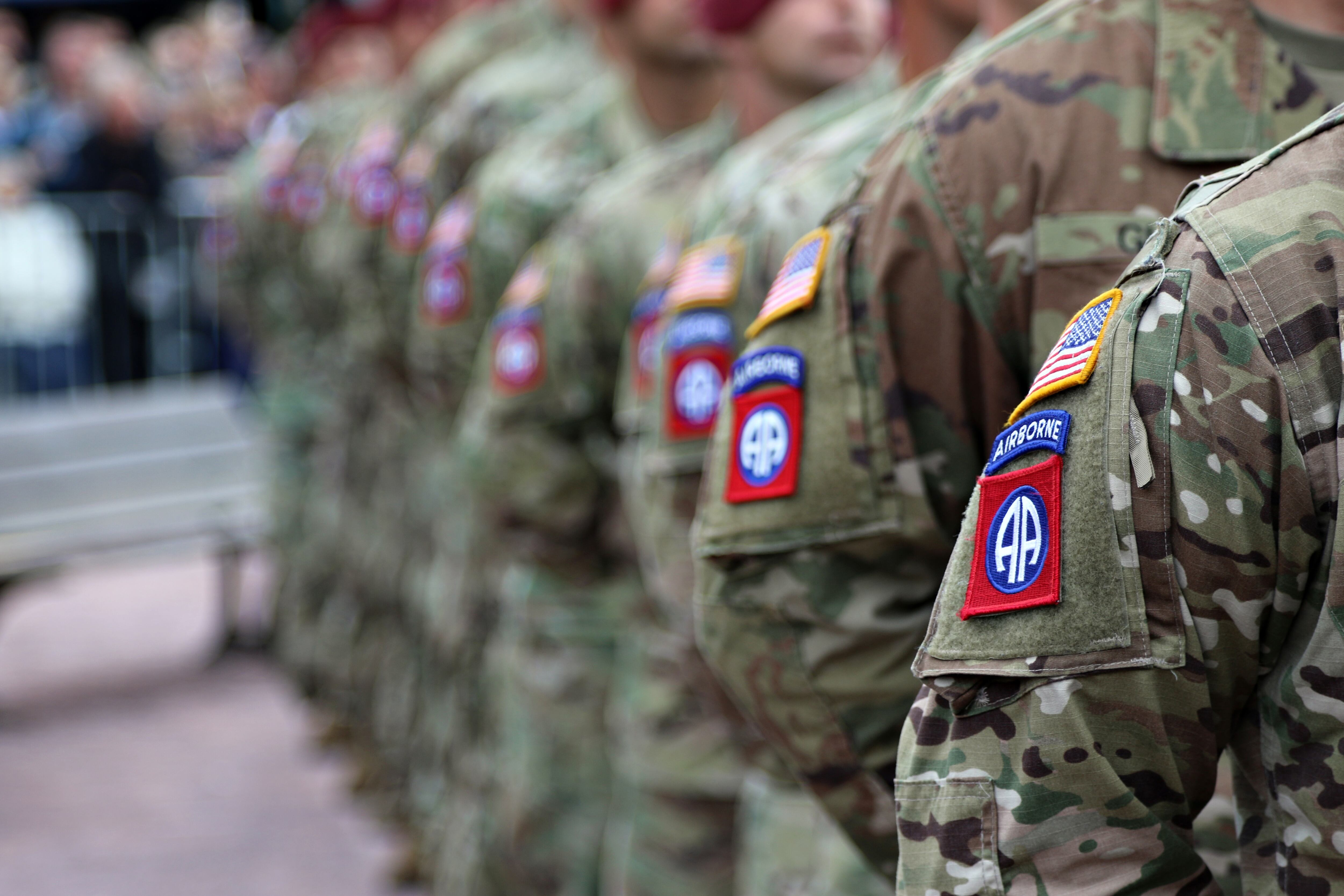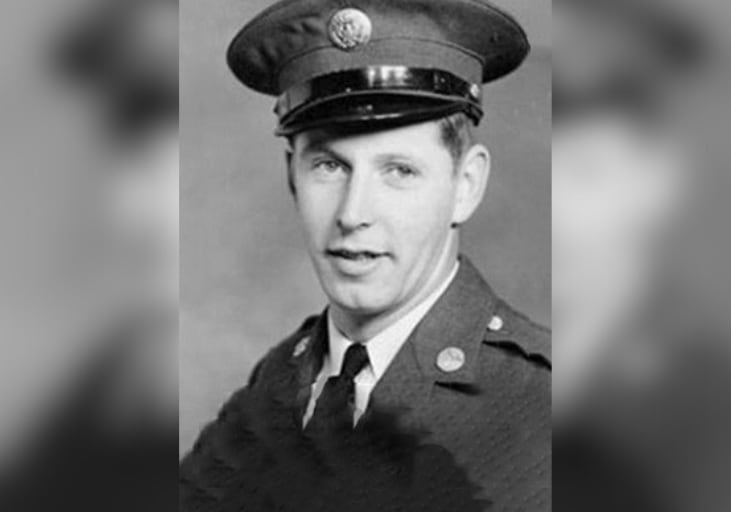The retirement ranks and pensions of a former Naval Academy superintendent and two other admirals are in hot water over — rebuked Tuesday by Navy Secretary Ray Mabus for their involvement in the so-called "Fat Leonard" bribery and fraud scandal — are now anything but clear. clearen quews, receiving rebukepunishments for alleged actions that date back almost a decade, according to a Tuesday Navy release.
The secretarial letters of censure Mabus issued for alleged actions dating back almost a decade are mostly a gesture, legal experts told Navy Times. It will fall , and it falls to the each officer's' grade determination boards to decide how the letters will factor into their retirement grades and pay pay. might not have any effect on the admirals' retirement. careers, all three of whom are in the process of retiring.
"I think all that is, is a nastygram," Eugene Fidell, a military law expert at Yale Law School, said of the censures. "If all [they get] is a censure, that's show biz."
According to a Tuesday news release from the Navy, Rear Adm. Mike Miller's letter of censure resulted from his alleged acceptance of gifts in 2006 as the head of the Ronald Reagan Carrier Strike Group. The letter came six months after he handed over command of the Naval Aacademy during a packed retirement ceremony, but he has been kept on , Rear Adm. Mike Miller, who has been kept on active-duty as a two-star while the investigation proceeded, received a secretarial letter of censure, the release said, for accepting gifts as the head of the Ronald Reagan Carrier Strike Group 7 in 2006.
Miller, 62, and two other senior officers were censured for allegedly improperly receiving and soliciting gifts from — as well as improperly endorsing — Glenn Defense Marine Asia, a Malaysian pierside services contractor.
Rear Adm. Terry Kraft, commanding officer of U.S. Naval Forces Japan, and Rear Adm. David Pimpo, head of Naval Supply Systems Command Weapon Systems Support, also received secretarial letters.
"Censure was both necessary and appropriate," said Navy Secretary Ray Mabus said. "I have now received the retirement requests of all three officers, and we will process them appropriately."
All three will go through a grade determination process as par of their retirement proceedings, which will decide at what rank they'll retire, Navy spokesman Cmdr. Ryan Perry confirmed. Their retirement grade is one of three factors that affects their pensions, along with length of service and year of retirement.
What's next
The officers' involvement with GDMA dates back to 2006, when all three were assigned to Carrier Strike Group 7 on the aircraft carrier Ronald Reagan: Miller as the strike group commander, Kraft as the CO of Reagan and Pimpo as its supply officer.
Leonard Glenn Francis, GDMA's chief executive, pleaded guilty as the head of a ring that allegedly bribed and manipulated active-duty officers to steer ships to ports where his husbanding firm could bilk the Navy of millions for overstated or illusory port services, like security, food, fuel and more. of bribing and manipulating active-duty officers to steer their ships to Kota Kinabalu, Malaysia, then pocketing millions in jacked-up port call fees for docking, customs, fueling, etc.
All three will go to a grade determination board to decide at which rank they'll retire, Navy spokesman Cmdr. Ryan Perry confirmed.
A board could be particularly complicated for Miller, who had planned to leave the Navy last year after finishing his tour at the Naval Academy.
He is the second academy supe in a row to be rebuked; his predecessor, Vice Adm. Jeffrey Fowler, was forced into retirement a month early after an inspector general report uncovered extravagant spending and a "slush fund" for promotional activities at the school.
Since turning over command of the academy to Vice Adm. Ted Carter in July, Miller has and passed the Old Goat liquor decanter on to Chief of Naval Operations Adm. Jon Greenert, who is now the Navy's longest-serving academy graduate. Miller TK from Ryan Perry, whether he knew about the investigation when he retired.Since last summer, Miller been serving as a special assistant to Carter, bringing in about $14,000 a month while awaiting for the results of the investigation. hammer to drop.
Though Miller ultimately achieved the rank of vice admiral, there is now considerable doubt now gray area over the rank at which he'll be allowed to retire now.
The board could determine bring up his alleged misconduct is as grounds for retiring him as a one-star, a former Army judge advocate general officer, who now works in private practice, told Navy Times.
"If a grade determination board finds that the last rank in which he served honorably was as a one-star, he could retire as a one-star," said Greg Rinckey, who now works in private practice.
In that case, the board could argue fordecide that the alleged misconduct of all three admirals that their misconduct tarnished their service, and their subsequent promotions shouldn't count.
Miller has already served the six months as a two-star since his change-of-command ceremony as a two-star, because his rank reverted once he left the wasn't inat a three-star billet.
The best case scenario, Rinckey said, is that Miller retires as a two-star.
If the admirals retain counsel, Rinckey said, the lawyers wouldwill most likely argue that because the alleged misconduct occurred at a lower rank, they still served honorably at their highest ranks and should be able to retire at those grades.That doesn't mean it'll stick, though.
"We're seeing the boards be very tough on this," Rinckey said. "Quite honestly, they've been reducing a lot of officers down to a lower grade."
Miller will retire with 38 years of service and full benefits for his rank, once it's determined.
Rinckey said he could submit a rebuttal to the letter of censure or ask the Board of Corrections for Naval Records to upgrade him, but the chances of success aren't great.
The investigation
Last yearMarch, Mabus ordered all of the GDMA cases in which prosecutors uncovered evidence of misconduct but decided not to press criminal charges to be sent to a consolidated disposition authority. The CDA would review allegations and establish standards for handling them, said Cmdr. Tamara Lawrence, Mabus' spokeswoman, at the time.
The Navy later named Adm. John Richardson, director of the Naval Nuclear Propulsion Program, as the CDA.
The CDA, Mabus said then, was set up specifically to deal with people for whom the civilian and military statutes of limitations on criminal prosecution had passed, or who did not do anything criminal but had violated, or may have violated, Navy ethics. The CDA would "hold those people accountable," Mabus said, "and it's a higher standard than just criminal acts."
The process is meant to evaluate a group's involvement with an issue en masse, then hand out individual determinations. The CDA, led by Adm. John Richardson, has the power to render non-judicial punishment, refer cases to court-martial or dismiss the allegations altogether. However, the civilian and military statutes of limitations play a significant role in how cases can be handled.
Because the CDA is the determining authority in the case, so officers involved can't be separately punished by their commanding officers.
Miller, Kraft and Pimpo are so far the highest-ranking active-duty personnel to face repercussions for their involvement with the GDMA scandal, which has resulted in the investigation of seen dozens of and Navy officers and civilians under investigation.
The GDMA scandal's aeffects have been wide-ranging. Two admirals in the intelligence branch have had their security clearances suspended while the Navy and Justice Department investigations continue.
In January, Capt. Daniel Dusek pleaded guilty to providing classified documents, such as ship schedules, to Francis.
"Fat Leonard" isn't the first time the Navy has rounded up multiple suspects to process them through one authority.
The Navy employed one in 2011 to handle another major scandal, one that involved active-duty officers who starred in or condoned lewd "XO Movie Night" videos aboard the aircraft carrier Enterprise. Forty leaders, including five admirals, were reprimanded in the case.
A CDA was also in effect for the Marines involved in video recording themselves urinating on Taliban corpses in 2011.
Francis is in federal custody in San Diego. Since news of the investigation broke in late 2013, he has admitted to multiple instances of bribery, influence peddling and corruption attempts, according to civilian authorities.
Meghann Myers is the Pentagon bureau chief at Military Times. She covers operations, policy, personnel, leadership and other issues affecting service members.





